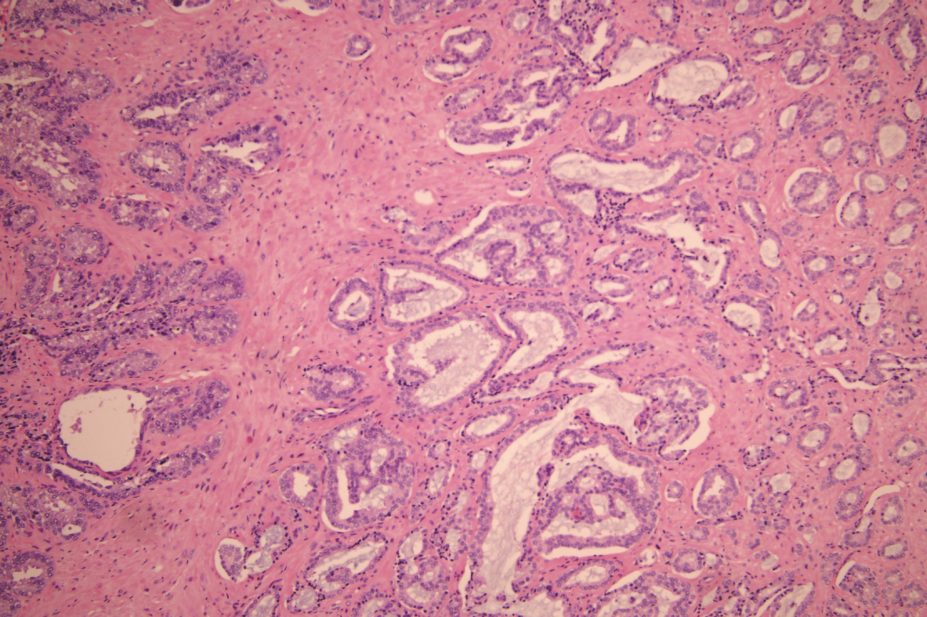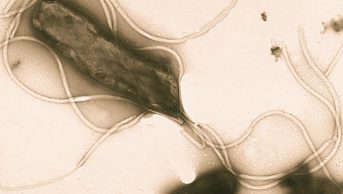
Wikimedia Commons
Olaparib was approved by the US Food and Drug Administration in December 2014 for the treatment of women with ovarian cancer who have inherited BRCA mutations.
Now, researchers have shown that the drug also benefits men with prostate cancer.
In a phase II clinical trial, 16 of 49 patients with treatment-resistant advanced prostate cancer responded to olaparib. Of 15 men with detectable DNA repair mutations, 13 responded to olaparib, according to research[1]
reported at the American Association of Cancer Research conference in Philadelphia on 21 April 2015.
The investigators, led by a team from the Institute of Cancer Research and the Royal Marsden NHS Trust, London, now plan to test the drug exclusively in men with prostate cancer that has detectable DNA repair mutations.
References
[1] Mateo J, Sandhu S, Miranda S et al. DNA repair defects and antitumor activity with PARP inhibition: TOPARP, a phase II trial of olaparib in metastatic castration resistant prostate cancer. Abstract presented at American Association for Cancer Research’s Annual Meeting 2015 in Philadelphia, 18–22 April 2015.


